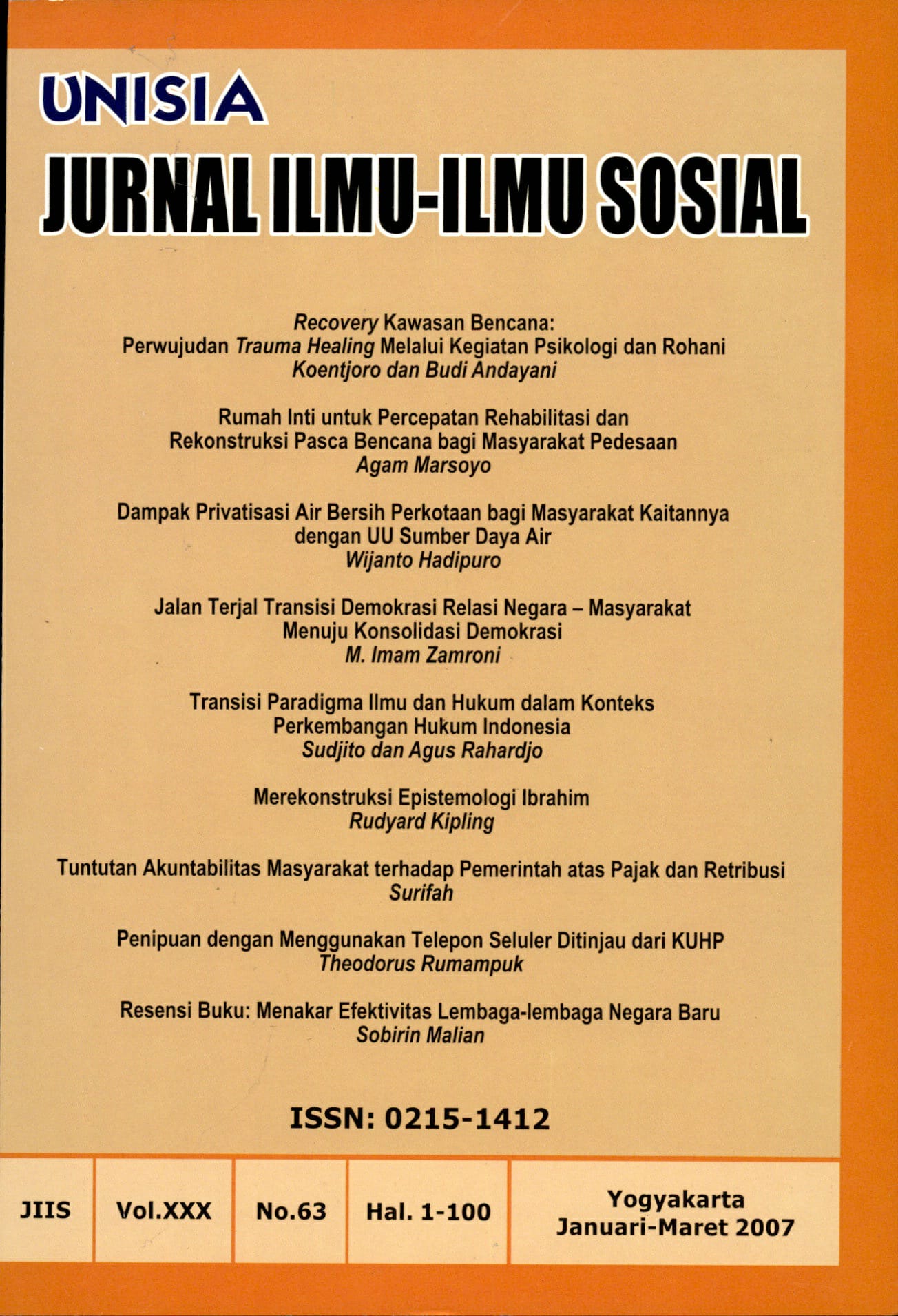Main Article Content
Abstract
There are four stages of the organization of urban water supply systems. The debate on whether public or private sector that should manage urban water supply systems always happens at the fourth stage where there is a shift on local water to beh global money : where the global companies start to be involved in managing urban water supply.
In Indonesia the debate started at the beginning of 1990s when there were discussion on the necessity to change the law no. 11 issued in 1974 on irrigation and it is still lasting until now, during the judicial review of the new water law-law no. 7 year 2004 on water.
Literature study on the impacts of inviting private sector to manage urban water supply shows that there are many problems arised: acces of the poor, tariff control and regulation, cherry-picking phenomenon, corruption, environmental degradation, and the problem on the relationship with multilateral agencies such as the IMF, the world Bank,and The Asian Development Bank.
The law No. 7 year 2004 on water which is proved to give some privileges for private sector to be involved in managing urban water systems is not sufficient to guarantee that the problems arised in involving private sector could be solved.
Article Details
- Authors retain copyright and grant the journal right of first publication with the work simultaneously licensed under a Creative Commons Attribution License that allows others to share the work with an acknowledgement of the work's authorship and initial publication in this journal.
- Authors are able to enter into separate, additional contractual arrangements for the non-exclusive distribution of the journal's published version of the work (e.g., post it to an institutional repository or publish it in a book), with an acknowledgement of its initial publication in this journal.
- Authors are permitted and encouraged to post their work online (e.g., in institutional repositories or on their website) prior to and during the submission process, as it can lead to productive exchanges, as well as earlier and greater citation of published work.





